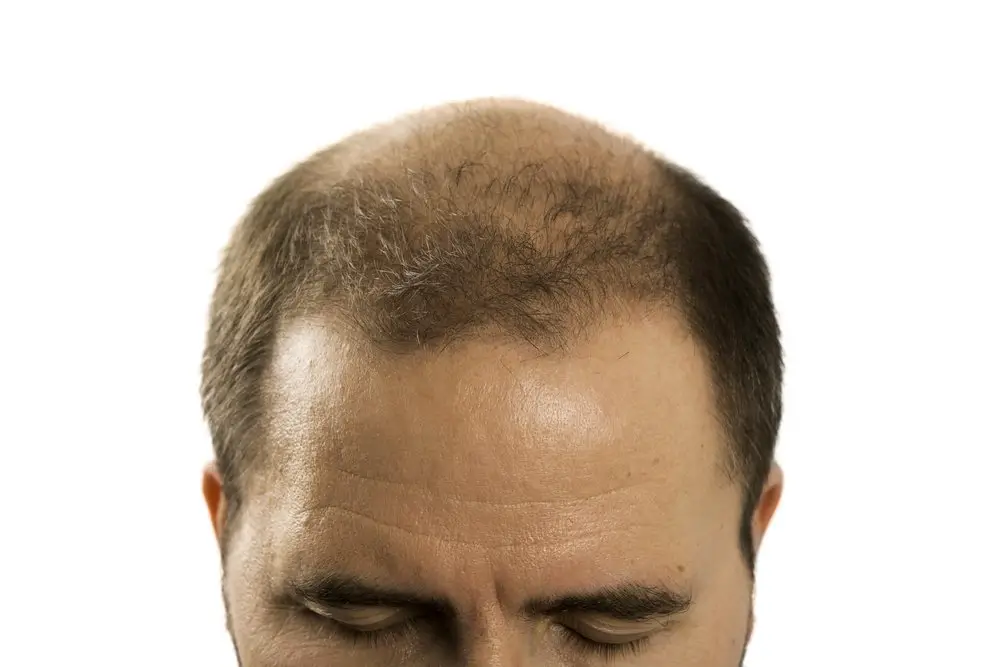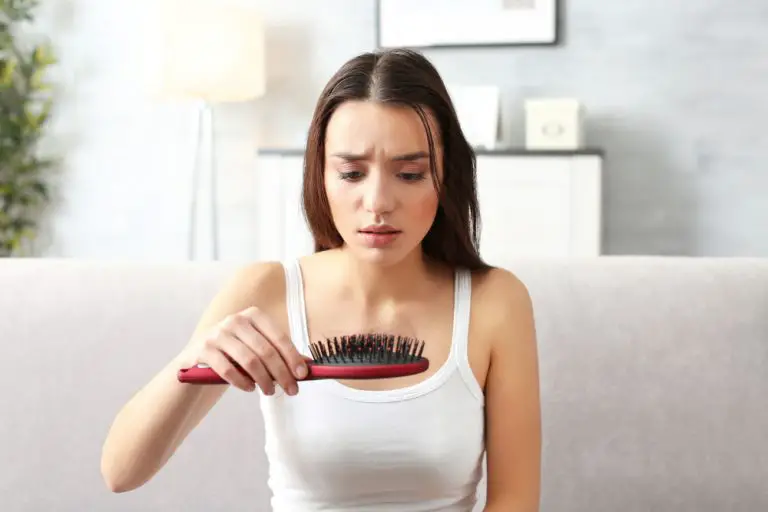
Page Contents
When you’re stressed and feel like the pressure of the world is on your shoulders, it can impact your body in various ways. From losing sleep to acne breakouts, high blood pressure to hair loss, stress can cause them all. While each body will react differently to stressors, having hair loss is common.
Why Hair Loss?
When you’re going through a substantial amount of physical or emotional stress, the hair loss that results is called telogen effluvium. This is where the large amounts of stress push your hair follicles into the resting period. The result is your hair begins to shed, giving the appearance of thinning.
Your hair follicle goes through a life cycle of growth – growth, transition, resting, and falling out. When your body reacts to stress, it alters the hair’s growth stage and changes into the resting stage. The good news is that even though you might have an overwhelming amount of hair fall and thinning, it won’t necessarily lead to lasting damage.
When You’ll Notice Stress Related Hair Loss
Hair loss from stress is not something that you’ll notice immediately. In most instances, people experience hair loss within the first three months after a stressful event. In most cases, this hair loss is a sign that new hair will be growing again at the base, so you should focus on minimizing the stress; you’ll see new hair growth in three to six months after this initial hair fall.
You are likely losing hair because the stress you face essentially puts your body into a “survival mode” of sorts. This diverts resources away from nonessential functions for life (like hair growth) and instead where it is needed most.
When You Should Worry
Losing up to 100 hairs a day is normal for every person. Because you have over 150,000 strands on your head, you won’t even notice those missing 100 each day. However, if you begin to see more than your typical hair loss, you should start making notes to discuss with your doctor. Start by finding when your most substantial loss occurs during washing, combing, running your fingers through your hair, etc. Then speak to your doctor about the problems you’re experiencing with your hair loss.
How to Stop Hair Loss from Stress
The first thing to do is find out what is triggering your stress and make lifestyle changes if you can. Once you begin to minimize the stress, add plenty of sleep, and a proper diet, you will see changes in the right direction.
It is important to remember that hair loss tips and tricks will not work for stress-related hair loss. It’s crucial to treat the stress and the causes of it. Your hair loss will naturally correct itself by alleviating the anxiety and stressors.
If you’re experiencing this type of hair loss, consult a doctor or a therapist to discuss what treatments are available to help you through this stressful period of your life. It is also essential to speak with a doctor to ensure that stress truly is the cause of your hair loss. In most cases, telogen effluvium will resolve itself; however, if your hair loss is from inflammation or scarring, it will not. It is best to work with a doctor to properly diagnose the reason for your hair loss, then collaborate on ways to help you resolve it.
Stress is a joy killer. It leads to a lot of health problems, including hair loss. Unfortunately, the appearance of hair loss further worsens the stress level as one begins to feel threatened by this monster. However, the good news is that hair loss due to stress can be cured.
If you have been overly worried regarding your hair loss caused by stress, be rest assured that your problem can be easily handled to restore the sheen, thickness, and fullness your luxurious hair once enjoyed.
Many sufferers have been helped in the past to stop their hair loss, and we have come up with the correct information you need to put a smile back on your face. By the time you’re done reading this post, you’ll learn how to regain hair loss from stress.
Read Also: Pura D’or Shampoo Review
Hair Loss Due to Stress | Types Of Hair Loss
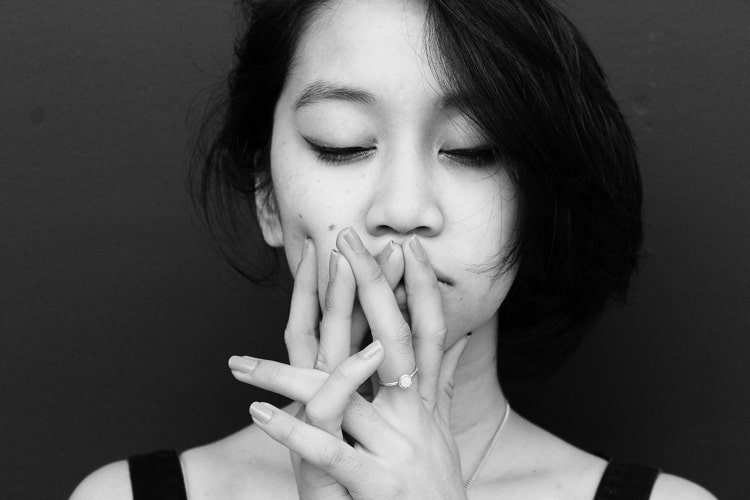
Before we talk about the causes of hair loss due to stress, let us first find out the types of hair loss problems. There are three types of hair loss due to stress, and they include:
1. Telogen Effluvium
Under a stressful situation, many hair follicles are sent into the resting phase, making them stop growing.
After some months, there may be a falling off of a high volume of the hairs attached to the affected follicles. Telogen effluvium is the leading type of hair loss due to stress.
2. Alopecia Areata
The immune system attacks the hair and makes them fall off. This even happens in large chunks occasionally. Stress is suspected to be a significant cause of this problem, though other factors are equally involved.
3. Trichotillomania
Stress, depression, boredom, anxiety, or loneliness can sometimes cause people to begin to pluck out their hair to cope with the stress.
Hairs are usually plucked from the head, eyebrows, eyelashes, and other body parts.
Causes of Hair Loss Due to Stress
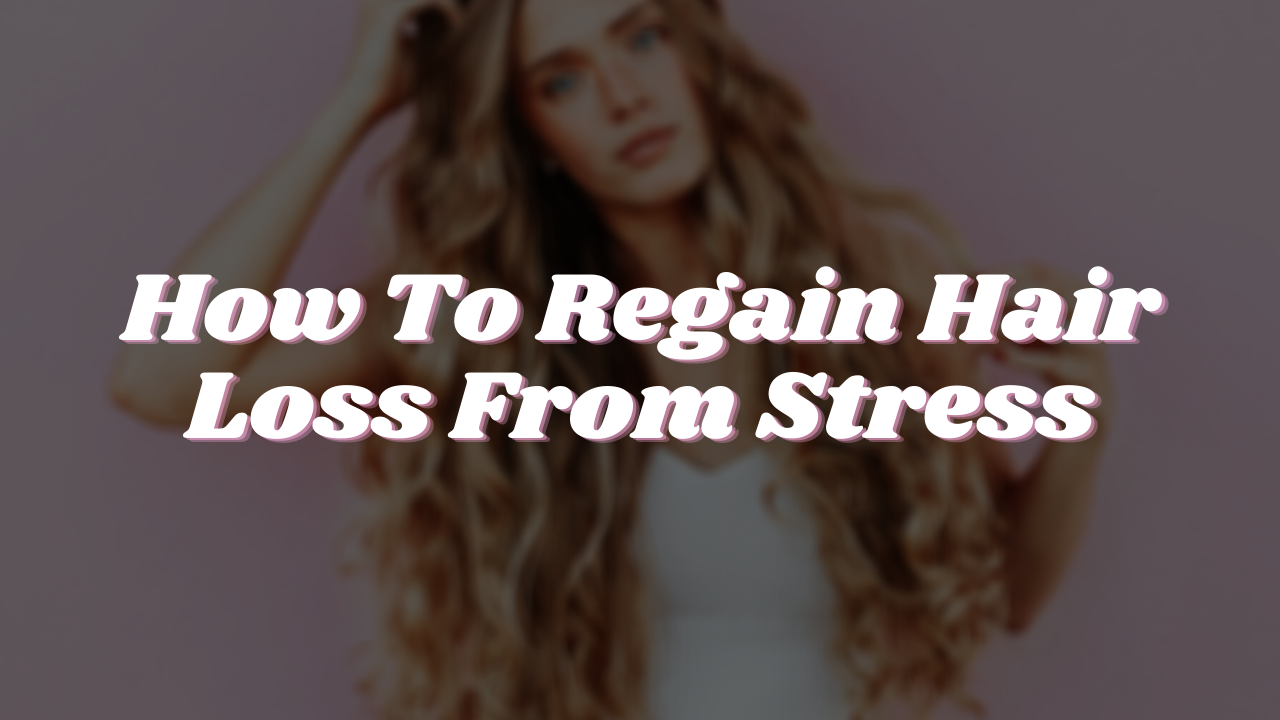
Many causes have been implicated as far as this challenge is concerned. Anything that produces stress capable of weighing the body down can also bring about hair loss. Some of the causes, therefore, include the following:
1. Loss of a dear one: The loss of a dear one is a particularly stressful situation capable of releasing stressors that affect your body physiologically. According to McMichael, only these factors that cause your body some physiological stress can lead to hair loss.
3. Nutritional deficiencies: This can come from failing to eat a well-balanced diet or a strict low-calorie diet. Depriving the body of its essential nutrients leads to physiological stress, resulting in stress-related hair loss.
4. Illnesses: Protracted illnesses, for example, can lead to physiological stress on the body. High fever also produces a similar effect on the system. When the system is overwhelmed by the fever, the body can react to the stress by losing some hair.
5. Anemia: This reduces blood volume or deficiency of hemoglobin and its oxygen-carrying capacity. When there is a shortage of oxygen, the cells are starved, going through some distress. This eventually manifests in hair loss.
6. Thyroid disease: prolonged cases of hypothyroidism and hyperthyroidism also lead to hair loss. In these cases, the hair loss is diffuse throughout the scalp instead of affecting a selected portion.
Proper management of the thyroid disease brings about regrowth, though it takes some months to fully recover. Unfortunately, some drugs used in the direction of thyroid problems are in themselves capable of causing hair loss.
7. Surgery: Some forms of surgery like the vertical gastroplasties give rise to the stomach’s inability to absorb certain nutrients. This gives rise to mineral and vitamin deficiencies, leading to hair loss.
Apart from the surgery itself, it is believed that some of the anesthesia used for the surgery can also contribute to hair loss.
8. Hormonal imbalance due to pregnancy: The hormone estrogen is secreted in high quantity and causes the hair to remain in a growing phase during pregnancy. But after pregnancy, its level drops to normal, allowing the hair to fall off and then return to the normal cycle.
This happens around the third month after pregnancy/delivery. But the situation is not severe enough to cause permanent balding.
How To Regain Hair Loss From Stress
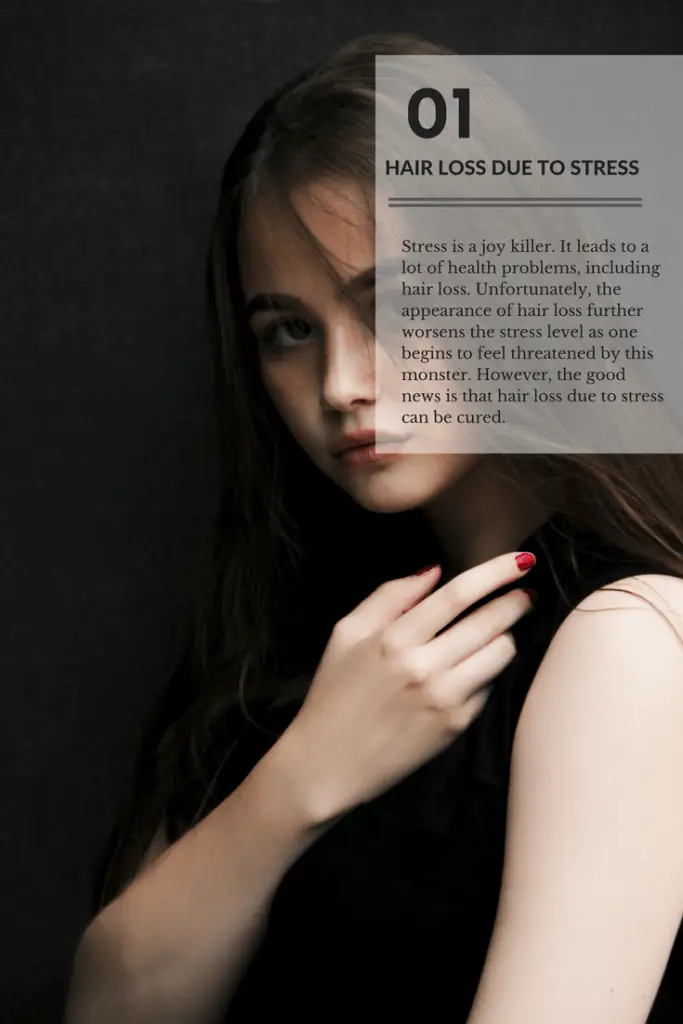
So, below is how to regain hair loss from stress:
1. See Your Doctor
Your hair loss might be something beyond stress. It is always better to see the doctor before commencing any treatment.
After running some tests and making the right diagnosis, the doctor will prescribe some medications for you. If the hair loss is caused by something else, the causative factor would be rightly handled.
2. Get Adequate Rest/Sleep
Stress can be fought with adequate rest and sleep. Stop working round the clock.
Getting enough rest will help to reduce the amount of stress hormone discharged into your bloodstream. So, having 7 to 8 hours of sleep every night should help manage your stress.
3. Improve Physical Exercise
Exercise helps in improving blood circulation to the various parts of the body. Physical activity leads to the release of endorphins (happiness hormone) which helps to create a feeling of calmness and relaxation.
This will assist in fighting off the stress and make your hair grow back to normal.
4. Change Your Medication
If your hair loss is traceable to your medications for other health conditions, it is time to change them and go for something with lesser side effects.
Some beta-blockers (anti-hypertensive), Non-Steroidal Anti-Inflammatory Drugs (NSAIDs), Lithium (for the treatment of bipolar disorders), and Methotrexate (for rheumatic conditions) are known to cause baldness as a side effect. So, if they are responsible, they should be changed.
5. Improve Your Diet
Malnutrition and a strict low-calorie diet are known to lead to hair loss. Therefore, to reverse the loss, you need to improve the quality of your diet. Add more protein to your diet to help to increase growth.
You can quickly get protein from fish (like salmon, halibut, and tuna), chicken, turkey, eggs, cheese, yogurt, milk, beef, pork, veal, tofu, and beans.
6. Increase Vitamins Intake
Increasing your vitamins is one of the ways to fight hair loss. The B vitamins are naturally helpful, and you can get them from meat, fish, non-citrus fruits, and starchy vegetables. Add vitamin A to your diet also.
But it shouldn’t exceed a daily intake of 5000 IU (for people above age four), as excessive vitamin A leads to hair loss.
Below are the things you should always do to reverse hair loss from stress.
- Use shampoos and conditioners that are suited to your hair. Oily hair needs light products, and dry hair requires super-moisturizing products. Be sure, therefore, that you are applying suitable shampoos to help preserve the quality of your hair.
- Don’t use hair products that contain too many chemicals. It is usually not the best thing to use shampoos that have parabens and sulfates. Instead, make use of shampoos that contain natural, organic constituents.
- Use blow dryers with care. If you must use blow dryers and other heated instruments, make sure you set it to cool. This will minimize further damage to your hair and reduce more hair loss.
- Avoid playing with your hair excessively. Do not twist, pull or break off split ends. Try also to avoid tying your hair too tightly (ponytails), as this can lead to traction alopecia. Keep the hair loose most of the time. Minimize brushing the hair too often.
- It would help if you did not use color treatment on your hair too often as they are capable of causing dryness, damage, and excessive processing of the hair.
What are the symptoms of hair loss due to stress? If you’re among the people that care to know about this, then we’ve got you covered right here and now.
Stress could go beyond what you see with the naked eyes and cause more harm than you bargained for. Anxiety symptoms may be evident in some cases; a lot is not; they can kill you slowly.
We have different ways of paying for stress, and they could come in the form of physical, mental, psychological, or social illnesses.
Some of the ways stress manifests include hair loss, change in menstrual flow, physical weakness, poor appetite, loss of sleep, physical aggression, loss of weight, loss of concentration, poor academic performance, and lots more.
But what exactly are the symptoms of hair loss due to stress? When hair loss is caused by stress, it manifests in different ways. Some of them could be gradual or rapid depending on the stress level and the individual’s stress tolerance level.
Symptoms of Hair Loss Due to Stress

Some of the common symptoms of hair loss due to stress or anxiety include the following:
- You observe a thinning of your hair
- You observe the appearance of some bald spots
- You observe that your hairs are falling out in clumps
- You have the fear that your anxiety is making you go bald
- It appears that you are losing hair on your head as well as other spots on your body
- It seems that you are going bald
- You observe more hair appearing in your brush, comb, or even your shower or bathtub.
- It seems your hair is falling out or thinning excessively
Apart from those above, there could also be other things you notice that could almost immediately convince you that your stress contributes to the hair loss being experienced.
You could notice an increase in the amount of hair that comes out while brushing or combing your hair. It could also be that clumps of hair come out at a time when you rub or wash your skin.
Besides, you may sometimes notice hair loss on several head areas, in one area of the head, or on the entire head. Hair loss may also occur on any part of the body.
Loss of hair may change from moment to moment and/or day to day.
Loss of hair may precede, follow or accompany an incident of elevated stress, anxiety, nervousness, and fear. It could also come suddenly and for no apparent reason.
Hair loss can come and then go slowly, come recurrently, or remain forever. For instance, you could have a loss of hair, thinning, and balding periodically, or have it off and on, or have a loss of hair all the time.
The amount of hair loss could vary from slight to moderate to severe. It can be mild, moderate, or excellent.
It is widespread to have all of the above combinations and variations.
Telogen Effluvium
During this resting phase, the hair shafts are shed to create a space for the next hair growth cycle. During this period, one can shed from 50 to 100 hairs daily.
Unfortunately, some people feel they are losing hair due to stress when they are passing through the telogen or resting phase in the real sense.
However, when the body passes through acute stress or is severely damaged, the natural cycle could be interrupted, thereby forcing plenty of follicles to instantaneously go into the telogen effluvium phase, leading to the falling off of a large number of hairs.
Factors that can set off the telogen effluvium include physical trauma such as burn injury, surgery, or car accident. During periods of emotional stress, like following the loss of a dear one, divorce, loss of a job, or loss of valuable property, some persons may suffer from highly elevated blood pressure or may even starve for days.
This could cause the body a whole lot of stress. This is why, just like physical stress, severe mental stress can cause telogen effluvium.
During periods of emotional stress, like following the loss of a dear one, divorce, loss of a job, or loss of valuable property, some persons may suffer from highly elevated blood pressure or may even starve for days.
This could cause the body a whole lot of stress. This is why, just like physical stress, severe mental stress can cause telogen effluvium.
Therefore, going through telogen effluvium related to stress can result in the symptoms above. But the good news about telogen effluvium is that the condition takes care of itself, and the hair growth returns to normal once the stress has been removed.
In that case, hair loss symptoms due to stress may not last for a long time – a sign to note.
However, more severe mental health conditions can produce a more prolonged effect on hair loss. One of such mental health conditions is known as Trichotillomania. It involves the recurrent, alluring desire to pull hair from the eyebrows, scalp, or any other body part, even though the patient tries to stop.
Some of the symptoms of Trichotillomania include:
- Patchy bald spots
- Permanent impairment in the scalp’s ability to produce new hairs
- Variable symptoms
- Symptoms may come and go for weeks, months, or years at a time
Conclusion
It is good to look out for these signs and do all you can to take away the stress as soon as you can. Do not wait until your hair is destroyed before acting. Take action now and stop that hair loss.
Tired of chasing down hair growth solutions without the results you're after? Make sure you're using the three hair loss products known to work before experimenting with alternative solutions - you may be surprised with how effective those three alone can be.


